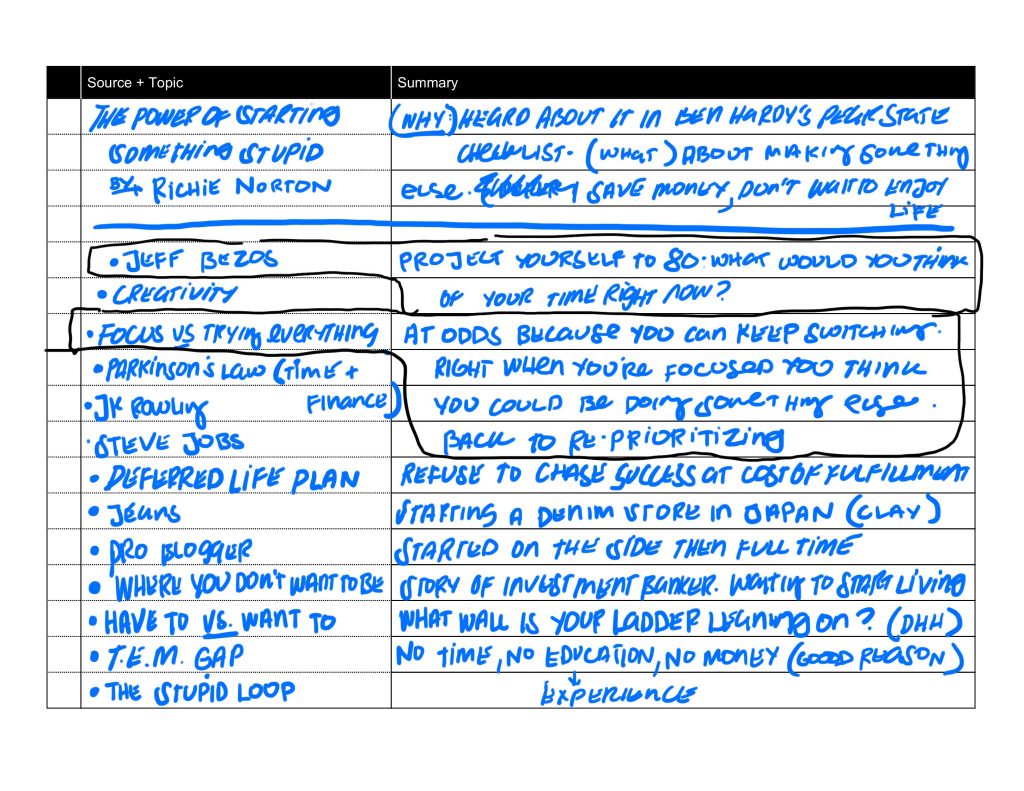I hope you don’t think it was dumb to start reading this.But hold on, you might find some power in it.You’ll definitely find some power in reading The Power of Starting Something Stupid by Richie Norton. Here were some takeaways.
- No time? No experience? No money? No problem! I’m with this with the caveat that you’re not currently living paycheck to paycheck. That can definitely be a problem. Time-wise, I always think back to how the creator of del.iciou.us built it in 15-30 minute blocks of time that he had free from day to day. One chunk at a time. As experience goes, you’ll probably need it to get some specific job at some specific company. But if you’re starting up something on your own, there’s plenty to learn by doing. After all, you have to at least learn enough to move from “don’t know what you don’t know” to “know what you don’t know”.
- What if you were 80? Richie Norton talks about Jeff Bezos’s approach to prioritizing. When you’re trying to start out and create things, you’re going to have plenty of ideas that you think are worth pursuing. You’ll pick one, work on it for a few weeks, then start questioning if one of those other ones was better to focus on. So you start working on that one, work on it for a few weeks, then start questioning and on and on. Instead, try thinking about when you’re 80 and looking back on this time in your life. Which of those activities would you think “Hey that was a great use of time”? It’s probably the right one to pursue. It’s at least another tool in your decision-making toolbox.
- Digital vs. film photography—both are good, both are bad. One of my favorite sections involved describing two different photographers. One of them switched entirely to digital when the jury was still out and it looked like it might just be a passing trend. (Imagine if you triple downed on 3D movies after seeing Avatar.) The other one has stuck to film photography even now. Both of them are successful. Richie Norton credits it to their sticking to their authentic selves. If the photographer who truly loved film switched to digital and was half-hearted in it then he might not succeed. And the same is true if the digital pioneer just half-heartedly stuck to film.
Anyway, those are just a few takeaways from the book. I enjoyed it. I originally picked it up after seeing Benjamin Hardy recommend it (along with a few others) as something to listen to in the morning for continual motivation.I’m trying to figure out my own stack of books to use for that. So far it’s probably something like… Essentialism, Barking Up the Wrong Tree, The Slight Edge, and… actually this sounds like a different post. So stay tuned for that.
In the meantime, go work on something stupid. It’s worth it.
